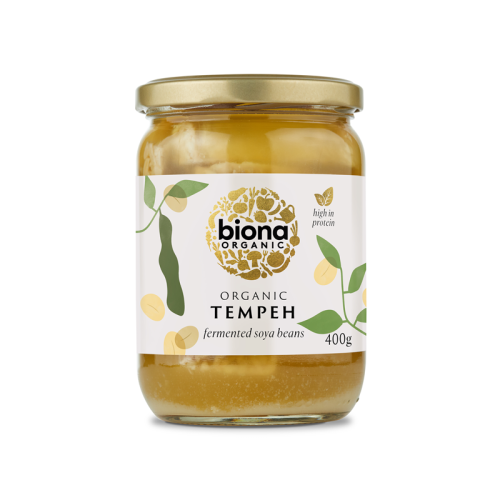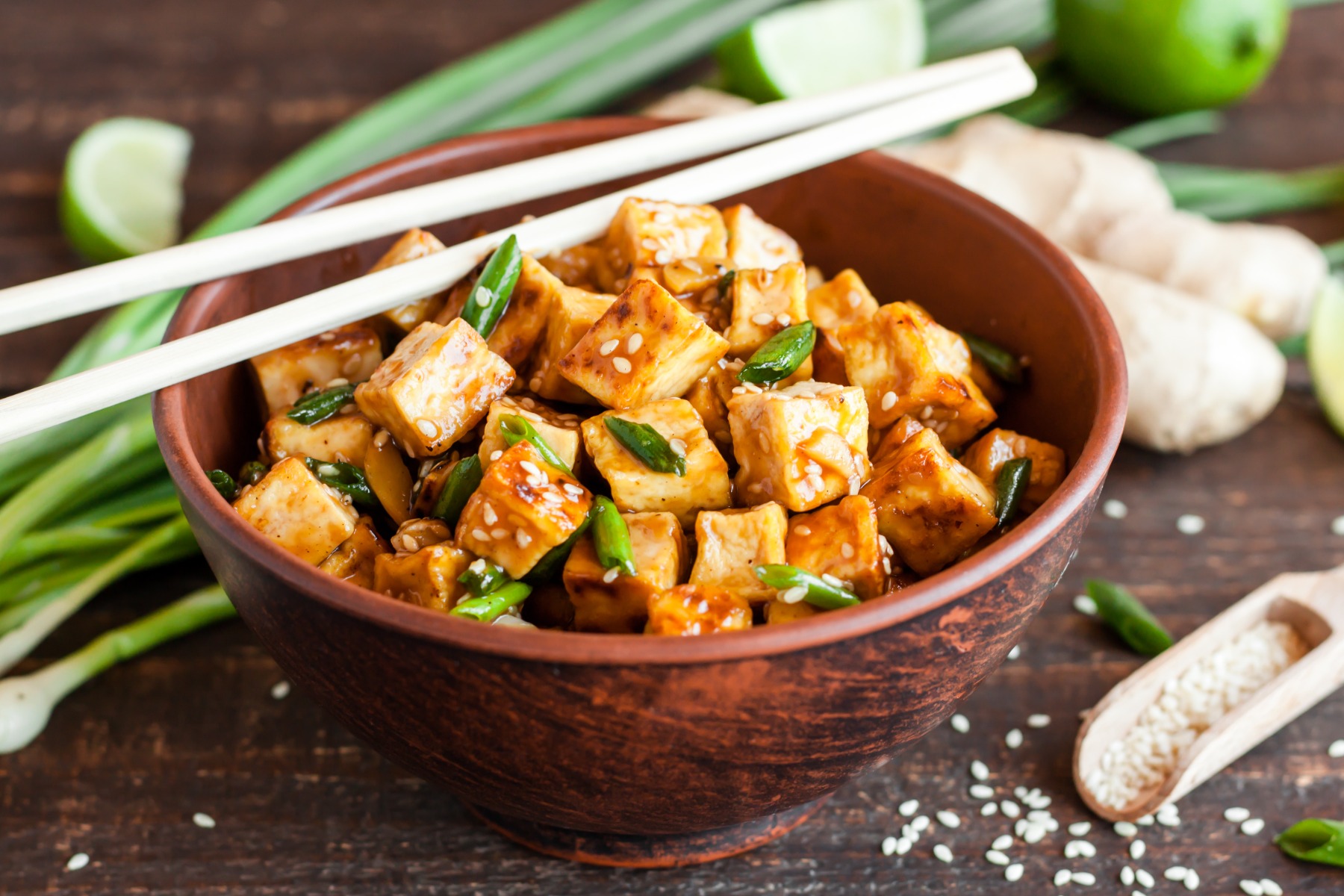

Photo Credit: "© [yuliiaholovchenko] / Adobe Stock
Figuring out whether tofu or tempeh is better can be a nightmare. You’re sure they’re good for you. After all, everyone recommends them. But to make it even more challenging, they’re both made from soybeans. So, there can’t be any real difference. Can there? Well, that’s why we’re here.
If you’re curious about which one to pick, stick around. We’re giving a rundown of the health benefits of both soy products. We’ll also answer the ultimate question - is tempeh better for you than tofu? Or is it the other way around? Let’s get into it.
What’s the difference between tempeh and tofu?


Photo Credit: "© [fahrwasser] / Adobe Stock
Tempeh and tofu are made from soybeans, so they’re vegan and make fantastic meat replacements. On the outside, they appear fairly similar. So, how is tempeh different from tofu?
Tofu is made from soybeans by curdling soy milk. The curdled substance is formed into a firm block, which is left to cool and fully solidify. This may sound funky, but the process is similar to making cheese, which involves curdling dairy milk
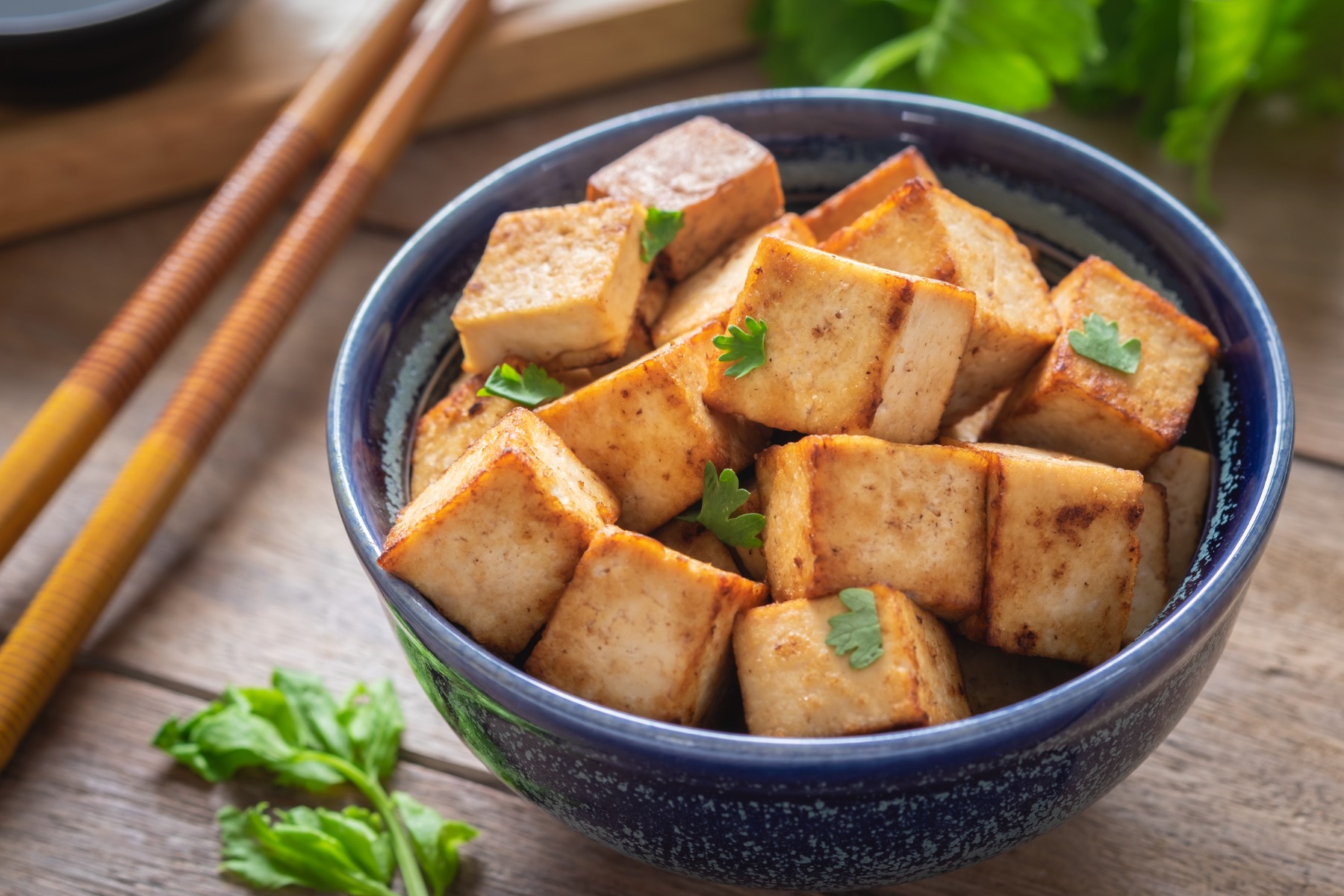

Photo Credit: "© [ritablue] / Adobe Stock
Unlike tofu, tempeh is made from the entire soybean (not just the milk). The beans are placed in boiling water and soaked overnight to soften. They’re then drained, and a fungus is added, starting a fermentation process. The beans bind together, creating a firm, bubbly block of soybeans.
Tempeh is sold fresh or pasteurised. Pasteurised tempeh is placed under high heat to prevent the fermentation from continuing, stopping it from going off as quickly. Fresh tempeh doesn’t undergo this heat, so it retains its fermentation process but spoils more quickly. We’ll talk about why fermentation in tempeh is important later in this article.
Health benefits of tempeh vs tofu
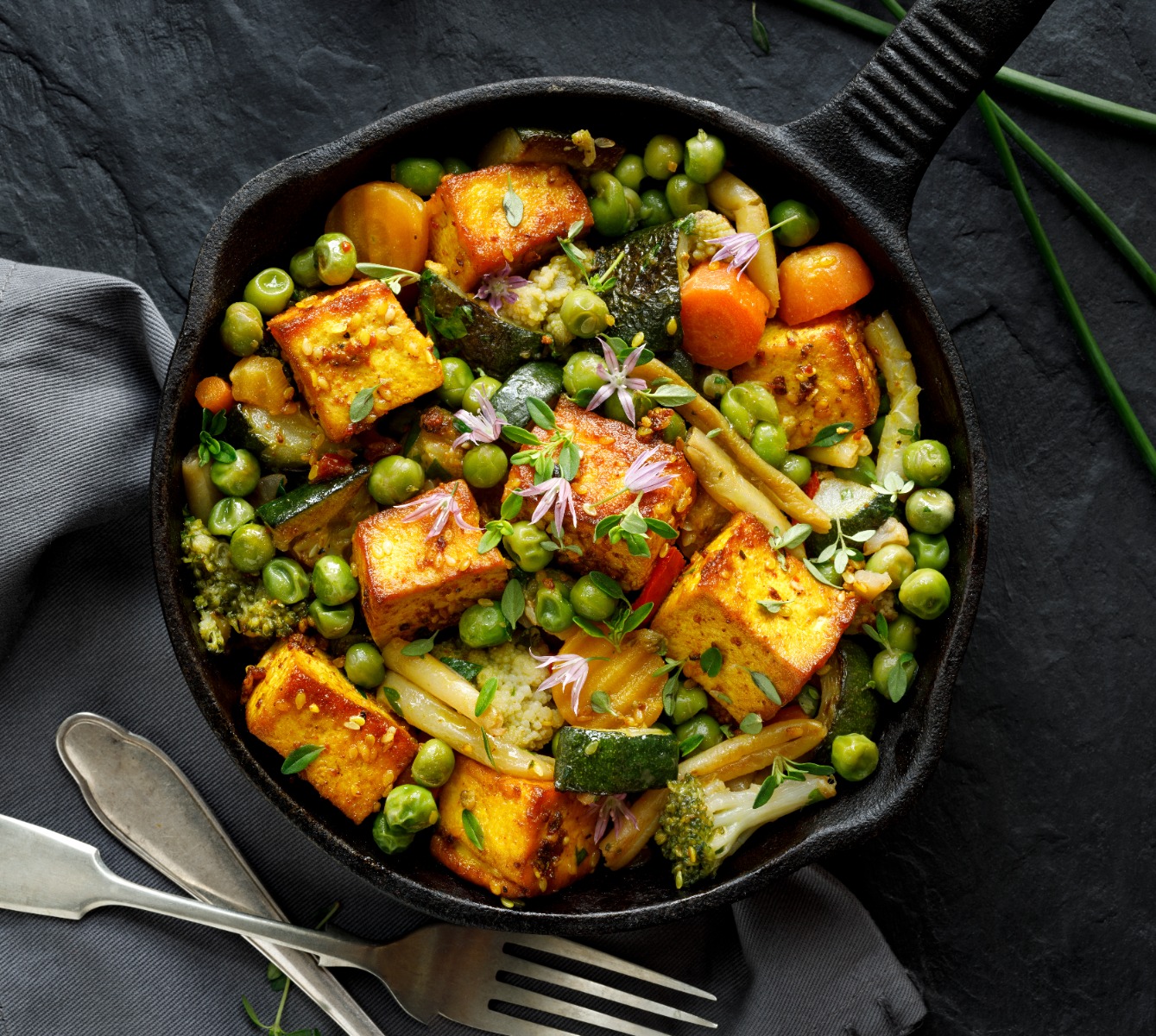

Photo Credit: "© [zi3000] / Adobe Stock
So, is tempeh healthier than tofu? Or are you better off choosing tempeh? In the next section, we break down the health benefits of each one so you can make an informed decision.
Protein in tempeh vs tofu


Photo Credit: "© [Malika] / Adobe Stock
The first place we’re going to start is protein. Protein is essential for muscle growth and maintenance. If your health goals are working out and muscle building, you’ll want to focus on getting a high amount of protein in your diet. The same is true if a beauty goal is hair growth. Getting protein from food helps your body create keratin, which is crucial for strong, healthy hair.
Per 100 grams, tempeh boasts a whopping 16.5 grams of protein. Whereas tofu has 50% less, coming in at 8 grams. This makes tempeh the clear winner if you want to increase your protein intake.
Fibre in tofu vs tempeh


Photo Credit: "© [KatBaid] / Adobe Stock
Fibre gives your digestive system slip and binds stool together. It also stops the body from absorbing too much ‘bad’ cholesterol, allowing you to flush it from your system easily. When you don’t have enough fibre, your gut health declines, which affects your entire body. You may experience high cholesterol, along with a bloated stomach. This can lead to painful conditions like irritable bowel syndrome (IBS).
In the fibre category, tempeh leads with 5.6 grams per 100 grams, whereas tofu trails behind at 0.3 grams. This is because tempeh is made from the entire soybean rather than curled milk, which removes the majority of the fibre.
Tempeh vs tofu probiotics
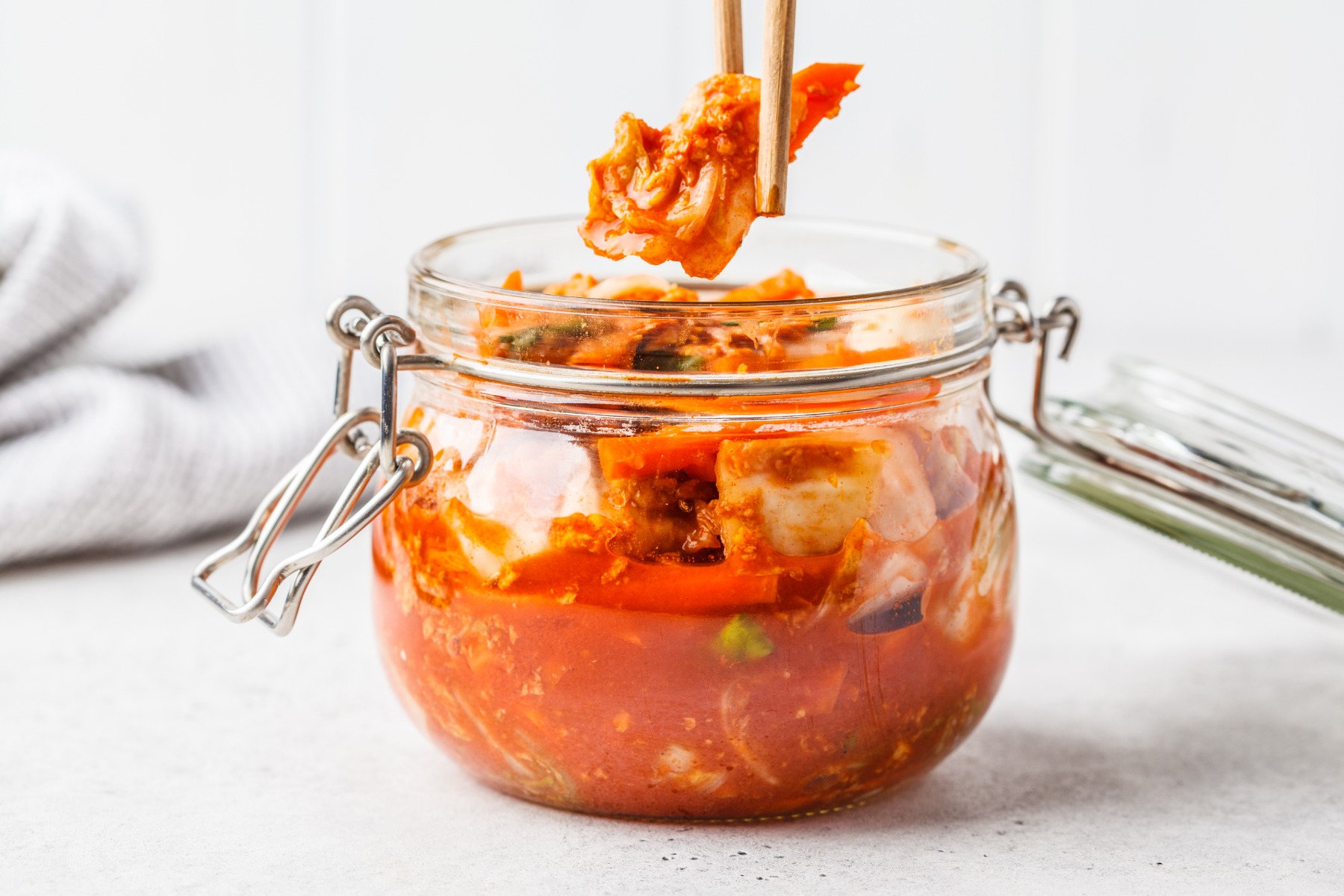

Photo Credit: "© [vaaseenaa] / Adobe Stock
Tempeh is fermented with fungi, which gives it a potent flavour. Fermentation creates probiotics to feed your gut microbiome, balance your digestion, and help your stomach lining absorb nutrients.
You can’t produce probiotics, so replacing them daily is essential. However, it’s crucial to remember that probiotics are only available in fresh tempeh, as the heat to create pasteurised tempeh kills the good bacteria. Tofu doesn’t go through the fermentation process and, therefore, doesn’t contain probiotics.
Vitamins and minerals: tempeh vs tofu nutritional value
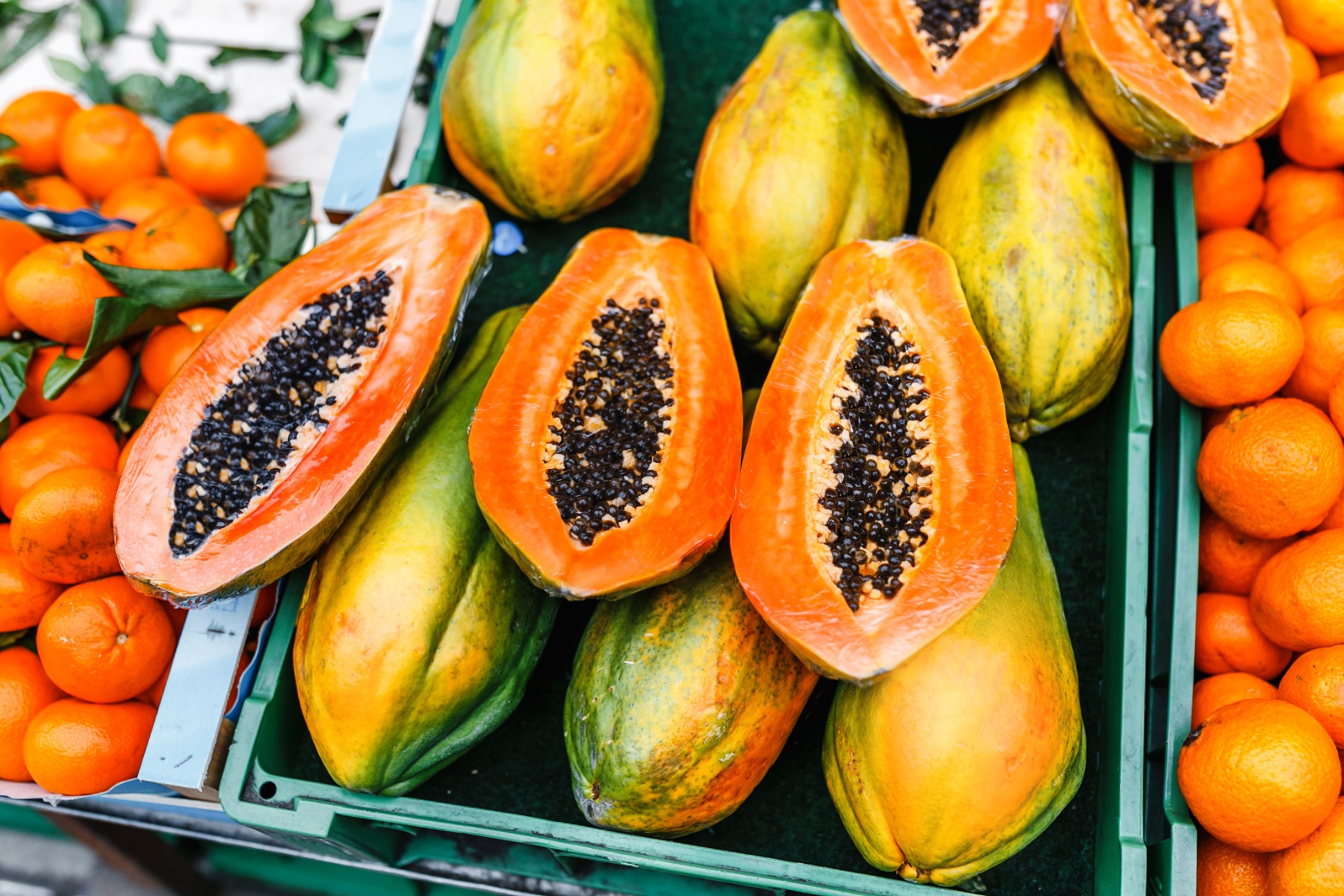

Photo Credit: "© [EdNurg] / Adobe Stock
When it comes to protein vs fibre, the obvious winner is tempeh. But what about other crucial vitamins and minerals for a healthy diet?
Unfortunately, neither has much iron. Tofu takes a slight lead with 0.5 grams per 100 grams, whereas tempeh has approximately 0.27. So, if you're lacking this mineral, we recommend opting for dark leafy greens, cruciferous vegetables, or iron supplements.
However, tempeh is a fantastic source of calcium, with 11 grams per 100 grams. So, it’s a food to consider if you follow a vegan diet and can’t eat dairy products. Tofu only has 0.3 grams, so source calcium elsewhere if you choose tofu.
Tempeh vs tofu taste and texture
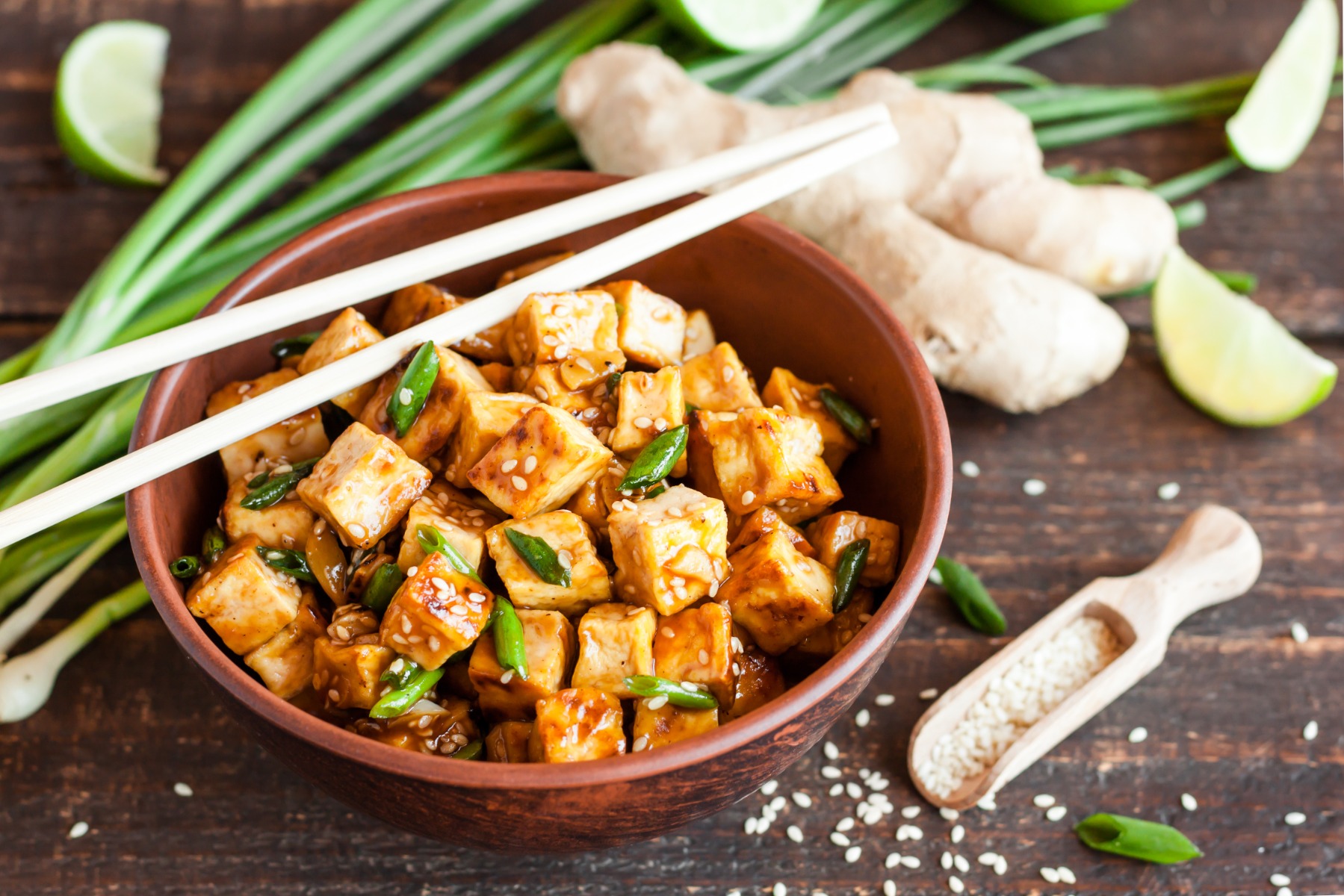

Photo Credit: "© [yuliiaholovchenko] / Adobe Stock
If you’ve come this far, you’ve probably reached the conclusion that choosing tempeh is a no-brainer. It trumps tofu in nutritional value in every category, except for a slight difference in iron. But there’s a reason people choose tofu over tempeh. So, what is it?
A significant contributing factor is the strong taste and texture of tempeh. Whole soybeans make the tempeh bubbly and chunky and retain their strong nutty flavour. It’s a very distinct taste and isn’t to everyone’s liking.
Tofu, on the other hand, is quite bland, which means it’s excellent at taking on flavours. Similarly to tempeh, you can use it as a meat replacement but with more variety. For example, sweet and sour tofu, curried tofu and tofu and soy sauce. Tofu is also silky and smooth in texture, which some people prefer. You can also eat tofu raw, whereas you must cook tempeh.
The bottom line: is tempeh better than tofu?


Photo Credit: "© [Mr. Bolota] / Adobe Stock
Tempeh has a higher nutritional value than tofu, with double the amount of protein and fibre. Therefore, it’s the clear option if your health goals are focused on building muscle and nurturing your gut health. Biona’s Organic Natural Tempeh is vegan-friendly and bursting with flavour and nutrients for a healthy body.
However, tempeh is more versatile and can be added to any dish. The fact that you can eat it raw also makes it a healthy and easy snack. If you’re unsure, why not try both? Use tempeh for its superpowered nutrition and tofu as a meat alternative for day-to-day meals. Look after your body and choose the best tempeh for a wholesome life with Grape Tree.
